How Seniors Can Avoid Power of Attorney Abuse
Power of attorney abuse can be dangerous and traumatizing. With these tips, seniors can stay safe and avoid elder financial abuse and power of attorney abuse. (Updated Jan. 2025)

What is power of attorney abuse?
Elder financial abuse, in general, is any act that causes financial harm to a senior in a relationship of trust. Usually, this is the misuse of funds or assets without the knowledge or consent of the senior.
ADVERTISEMENT
A power of attorney for property is a document that gives power to another person to act on your behalf in regards to your assets or your property, explains Léony deGraaf Hastings, a certified financial planner and elder planning counsellor at deGraaf Financial Strategies in Burlington, Ontario.
Therefore, power of attorney abuse is causing financial harm to someone (in this case, a senior) using a power of attorney.
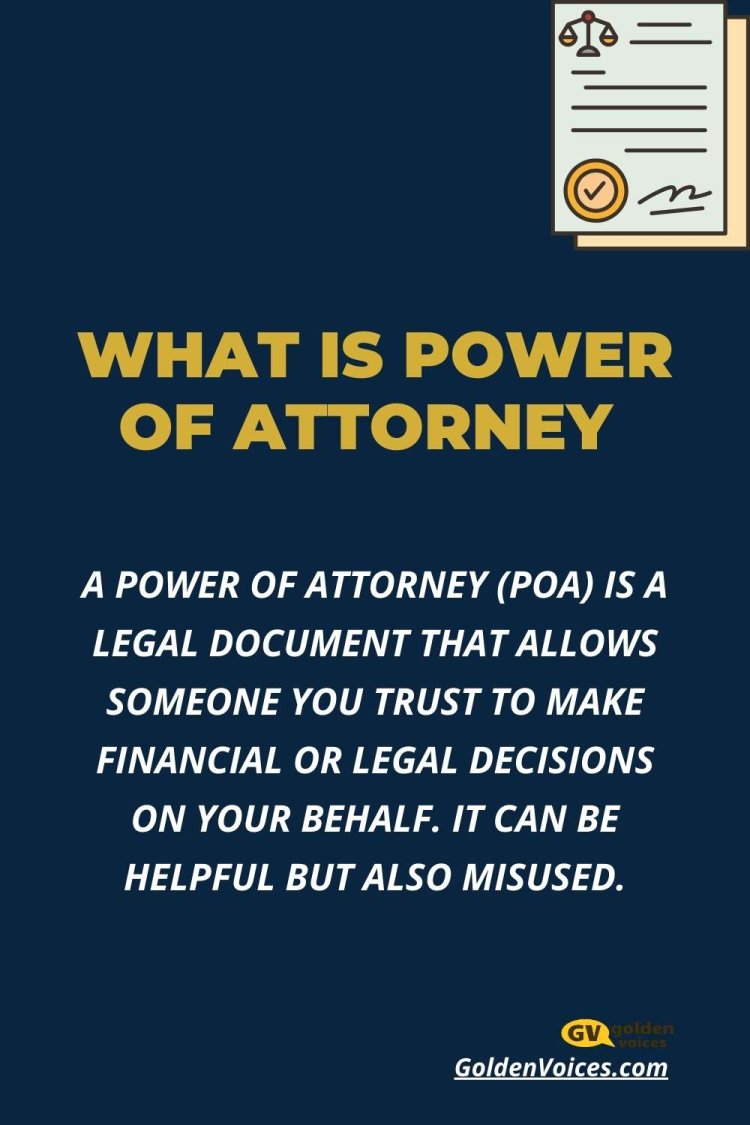
A powers of attorney can make it easier for somebody to take advantage of you because it gives another person full decision-making authority over your finances.
Powers of attorney are valid as soon as they’re signed and properly witnessed. As soon as this happens, the person named in the power of attorney document can do whatever they wish with the grantor’s money.
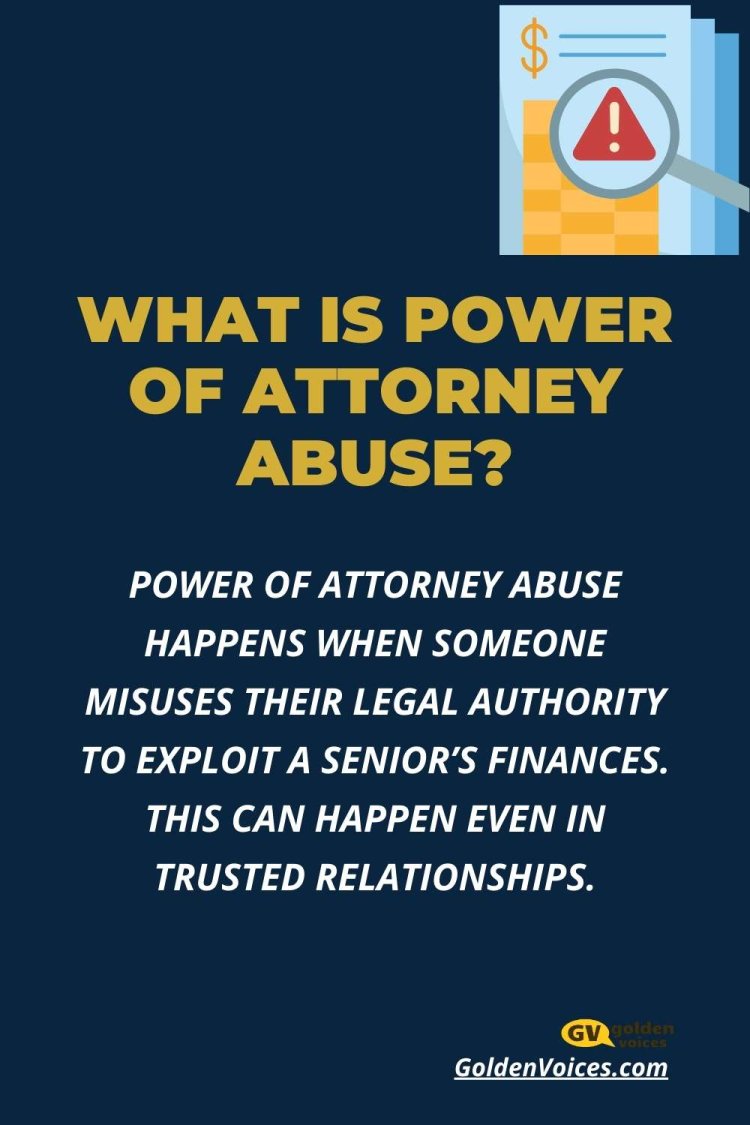
Some worst-case scenarios include manipulation and having personal autonomy taken away even when someone can make their own decisions. Power of attorney abuse, and elder financial abuse in general, can even happen in close parent-child relationships.
This is why it is essential to ensure that you have complete trust in the person you are granting access to your finances.
When is a power of attorney helpful?
Although powers of attorney can sometimes be used in nefarious ways, they are extremely helpful in most cases. DeGraaf Hastings says that everybody should have a power of attorney or two; one for personal care decisions and one for financial decisions.
“It can provide significant convenience for seniors if they do wish for [the person named in the] power of attorney to handle their day-to-day finances if they become unable to do so or if they have a diminishing capacity,” she said. “It can certainly provide a lot of convenience to a senior as long as the proper person is in that role.”
As a senior, creating a power of attorney puts you in control of who will make decisions for you should you lose the capacity to do so yourself. It even allows you to speak with the person you choose beforehand so that they are aware of your wishes.
Doing this is preferable to leaving it up to chance as to who will make decisions for you and what they will decide to do.
This means that you must choose the right person for the role and make sure that they are aware of your wishes.
Is there any authority that oversees these agreements to avoid power of attorney abuse?
There is no authority with formal oversight over powers of attorney. Still, you can report financial abuse issues to the Office of the Public Guardian and Trustee or the police.
ADVERTISEMENT
It is important to understand that neither of these authorities oversees powers of attorney. However, they can step in if you report issues.
Unfortunately, like all types of abuse, elder abuse goes highly underreported due to the shame associated with acknowledging that you have been abused by someone you trust. Sometimes, people might even be reluctant to get a family member or another individual close to them in trouble.
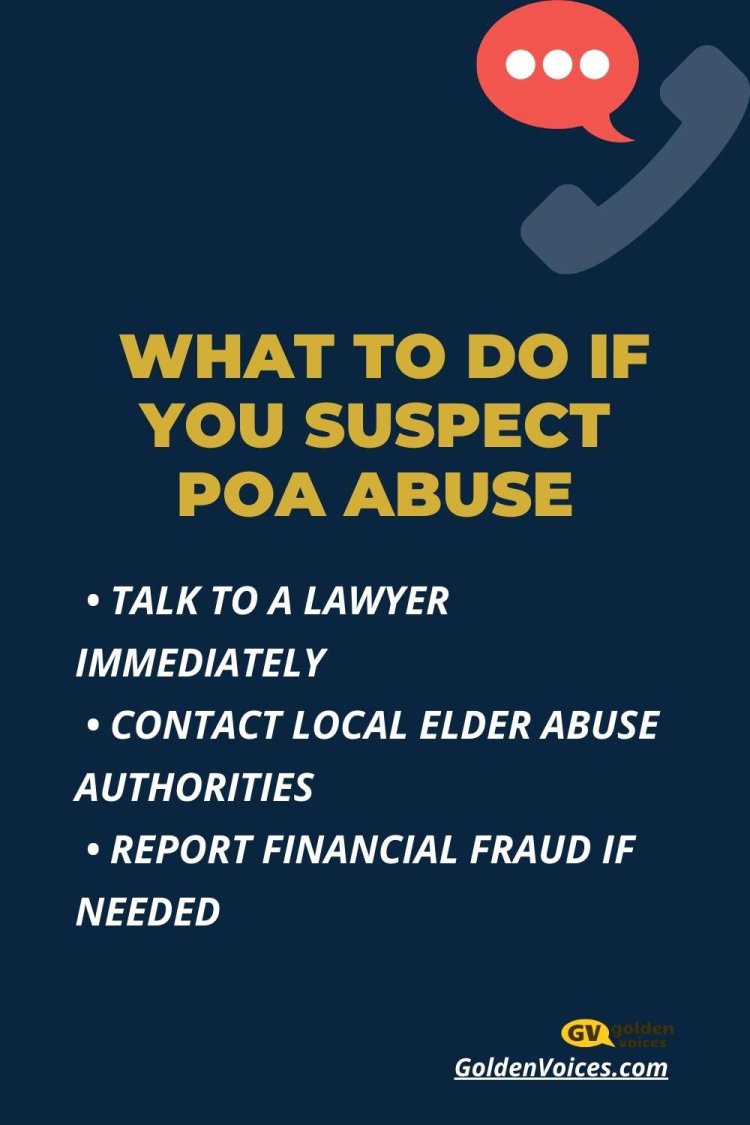
If you or someone you know is a victim of abuse, do not hesitate to report it to law enforcement or the Office of the Public Guardian and Trustee, or call 911 if you are in danger.
You can also call the Seniors Safety Line at 1-866-299-1011 for free, confidential support for seniors experiencing abuse.
(The Seniors Safety Line is the only 24 hour crisis and support line for seniors in Ontario who have experienced any type of abuse or neglect. Callers receive emotional support, safety planning, information and referrals in over 200 languages. The Seniors Safety Line is a "senior friendly" service with a live counsellor available to help navigate often difficult systems, 7 days a week, 365 days a year.)
How can you protect yourself from power of attorney abuse?
If you wish that the person granted power of attorney should make decisions for you only if you lose the capacity to do so yourself, you should explicitly write this in the document.
You should also note in the document that your incapacity is only to be determined by your family doctor or an independent capacity assessor.
This is because people who know you would be able to notice signs that you are capable or incapable of making decisions better than a stranger would. Professional capacity assessors should also be able to detect red flags in a possibly abusive situation.
If you want to give your power of attorney to one of your children but are concerned about them having total control over you, name two children jointly in your power of attorney document. You could add a lawyer or a trusted friend as a tiebreaker if the two children do not get along.
Naming your children is not required, either. If you have a family friend or other family member younger than you and who you trust equally or more than your children, you should name them.
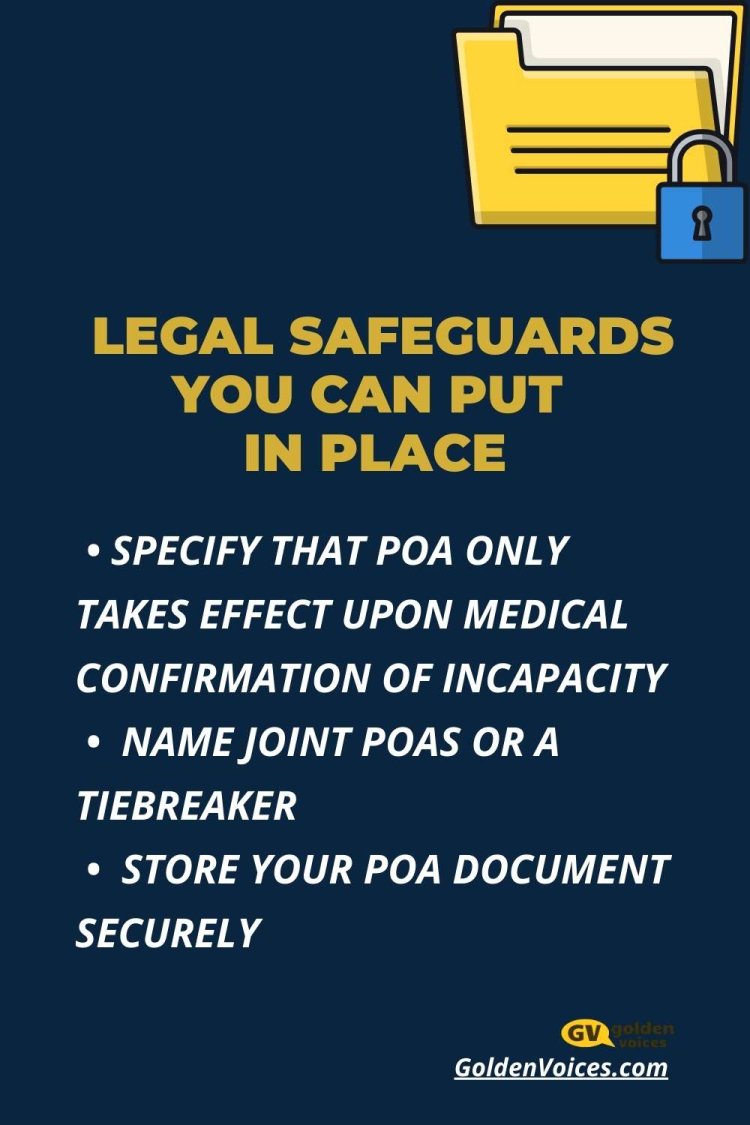
To keep your power of attorney document secure, you might decide to keep it with you. Giving it out is not required, and you can simply keep it in a safe place until it is needed. Just make sure that the person named in the power of attorney document can access it quickly and easily.
You can even carry a card in your wallet that states who has been granted power of attorney for you and their contact information. Healthcare professionals are trained to look in your wallet for important details like this.
Who should you make a power of attorney agreement with?
Give your power of attorney to someone close to you who cares about you. This person should be very responsible. For example, someone who pays their bills and taxes on time is a good choice.
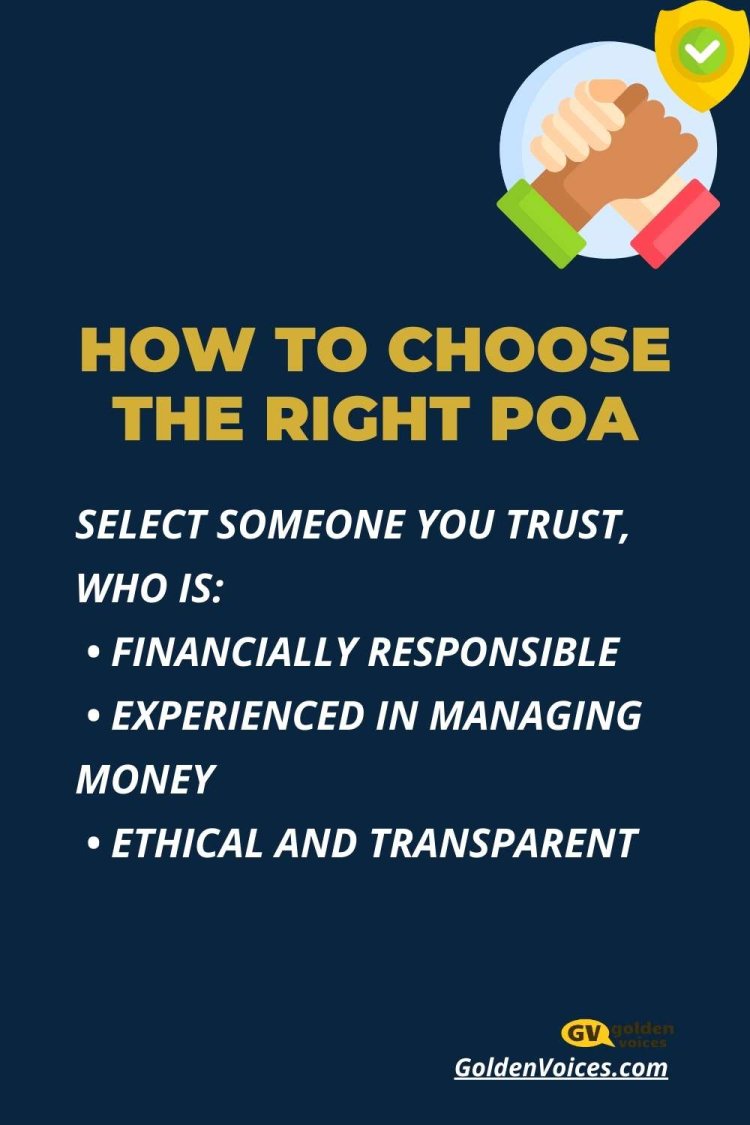
Give a power of attorney for property to someone skilled in managing finances. Even if someone is the most responsible and caring person you know, they will be no help if they don’t know how to do their own banking.
Financial advisor deGraaf Hastings says you should also consider family dynamics and consider the long-term ramifications of giving someone your power of attorney. Think about what might happen in their life and what they would do in those scenarios that might affect your financial security.
BIO

Léony deGraaf Hastings is a Certified Financial Planner at deGraaf Financial Strategies in Burlington, Ontario. She began working in the family firm over 20 years ago and has since developed the business to focus on helping seniors with retirement and estate planning. To achieve her goal of helping seniors, she earned Elder Planning Counselor and Certified Executor's Advisor designation. In 2014, she was listed as the second out of Canada's top 50 financial advisors by Wealth Professional magazine.
For more information go to: deGraaf Financial Strategies

 Anna Noseworthy-Turgeon
Anna Noseworthy-Turgeon 





